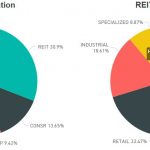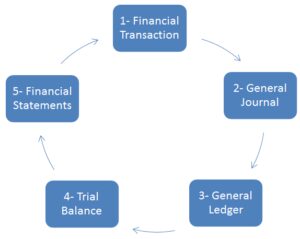
You can teach yourself bookkeeping in different ways (this guide gives you a solid start). Additionally, online courses (check Coursera and Udemy), workshops, and even free tutorials can equip you with the knowledge you need. You can also use bookkeeping softwares like QuickBooks, Xero, or FreshBooks to get hands-on experience. Steer clear of common mistakes like not keeping receipts, miscategorizing expenses, and mixing personal finances with business ones. “These can be avoided by maintaining meticulous records and using the right software,” Pierce says. Accounts receivable (AR) is the money your customers owe you for products or services they bought but have not yet paid for.
- Most accounting software automates entering information from the documents above.
- Opinions expressed on the pages of this website belong to the author and do not represent the views of companies whose products and services are being reviewed.
- If time is of the essence and you need quick solutions to your business finance challenges, Inks’ guide is an invaluable resource.
- Wayne Label’s work is a comprehensive and accessible primer for those who have little to no background in accounting.
- This helps you file income taxes accurately as you can deduct business expenses on your tax return.
- For instance, you might choose to start your fiscal year on July 1 and have it end on June 30 of the following calendar year.
Record Transactions
The book introduces readers to the fundamentals of financial accounting in a straightforward manner. You’ll explore essential concepts, practices, and terminology, acquiring the skills to interpret and utilize financial information effectively for business planning and decision-making. “Profit First” fundamentally shifts your financial management perspective, guiding you to prioritize profits over revenues. Trust me, if you’re looking to keep track of your finances efficiently and gain a comprehensive understanding of accounting, these books will help.
Best Accounting Books for Small Business Owners
Your chart of accounts, or COA, lists all of the accounts in your financial statements and breaks your money down into certain categories. A COA shows you all of the money going into your business as well as all of the money going out. To help ensure your recordkeeping goes smoothly and your books are in shipshape, follow these seven steps for setting up present value of future minimum lease payments calculator. The thought of recording all of your business transactions may seem daunting.

Open a business bank account
According to the NSBA Small Business Taxation Survey, filing and completing their federal income tax returns is one of the top concerns for small business owners. Based on the monthly sales, set aside some money to pay for your taxes. This will help you avoid having to outlay a significant amount of funds at the end of the year.
Bookkeeping best practices for success
Accountants are members of statutory organizations and registered accountants might call themselves CPAs (Certified Public Accountants) or CAs (Chartered Accountants). They are primarily responsible for preparing statutory returns, advising on legal entity structure and giving general business advice. Get up and running with free payroll setup, and enjoy free expert support.
Compile a Chart of Accounts
Every business is unique, but they all need to make money and pay taxes. For Nev Lapwood, the founder of Snowboard Addiction, doing the bookkeeping for his business himself—using an accounting program called Xero—worked well. This book is perfect for busy entrepreneurs who need straightforward, easy-to-implement financial strategies. If time is of the essence and you need quick solutions to your business finance challenges, Inks’ guide is an invaluable resource. “Overlooking bank fees and inaccurate record-keeping” are also frequent pitfalls, Schmied says.
Consider using one of the best bookkeeping services to make managing your books a breeze. At the end of the accounting period, take the time to make adjustments to your entries. For example, you may have estimated certain invoices that are later solidified with an actual british pound to us dollar exchange rate number. With only a single read-through, you’ll understand all accounting concepts and how they help you define, manage, and measure your enterprise. You might choose to use document management software to keep track of key financial information and statements.
That means setting up a separate business bank account to handle all your small-business transactions, including a business savings account to cover your business on a rainy day. Small businesses need to keep accurate records relating to any expenses they incur, particularly for expenses they plan to deduct. It’s also important to keep records of any agreements with vendors and suppliers, bank statements, documents showing payment of estimated quarterly taxes, and annual tax returns. From there, you might want to learn more about your small business’s financial management.
Similarly, you don’t notate outstanding bills until you actually pay them. This method offers a true snapshot of your assets and debts at any given time. Bookkeeping is the process of tracking income and expenses in your business. It lets you know how you’re doing with cash flow and how your business is doing overall. Staying on top of your bookkeeping is important so that you don’t have unexpected realizations about account balances and expenses.
Implementing systems and best practices for keeping track of expenditures and revenues is key to managing cash flow. Without these systems in place, it’s all too easy to lose track of funds or create the financial records necessary to file taxes and apply for small business financing, if necessary. If you run a sole proprietorship or some other type of small business, this book may contain all you need to know about bookkeeping and financial reporting. Many smaller businesses—with small numbers of financial transactions—appreciate the simplicity of a single-entry system. A double-entry accounting system can be a suitable accounting method for a business of any size, but it helps to have a trained bookkeeper recording your transactions if you use this method.
Each book on this carefully curated list of 15 has been chosen for its profound ability to address specific challenges and knowledge gaps in the field of accounting. It’s also useful to have a book written just for you like Accounting for Small Business Owners by Tycho Press. Focusing on your particular experience as a small business owner, this book remains relevant and focused.
You’ll want to periodically back up your files and ensure that you’re adhering to security protocols so your information isn’t compromised. For example, if you need to save a copy of a document separately from other files, you may put it in its own password-protected folder inside your document management software. The disadvantage is that outsourcing means your business’s financial information is being viewed by someone else, which you may or may not be comfortable with. Aside from that, you also have to consider what you might pay to hire an accountant on a full-time or part-time basis. In terms of the advantages of doing so, letting someone else handle your accounting means you have one less thing to worry about. Instead of crunching numbers, you’ll be free to focus on other tasks that are necessary to run or scale your business.
This comprehensive guide walks through the functionalities of QuickBooks Online, from the basics of setting up an account, to more advanced features like payroll and taxes. You’ll learn how to invoice customers, pay vendors, manage cash flows, and generate financial reports, making the day-to-day accounting process smoother what is net income and how to calculate it and more efficient. For anyone struggling with financial statements, this book turns seemingly intimidating accounting concepts into comprehensible knowledge. It’s a practical tool for small business owners aiming to get a handle on their company’s financial reports without getting bogged down in accounting technicalities.
